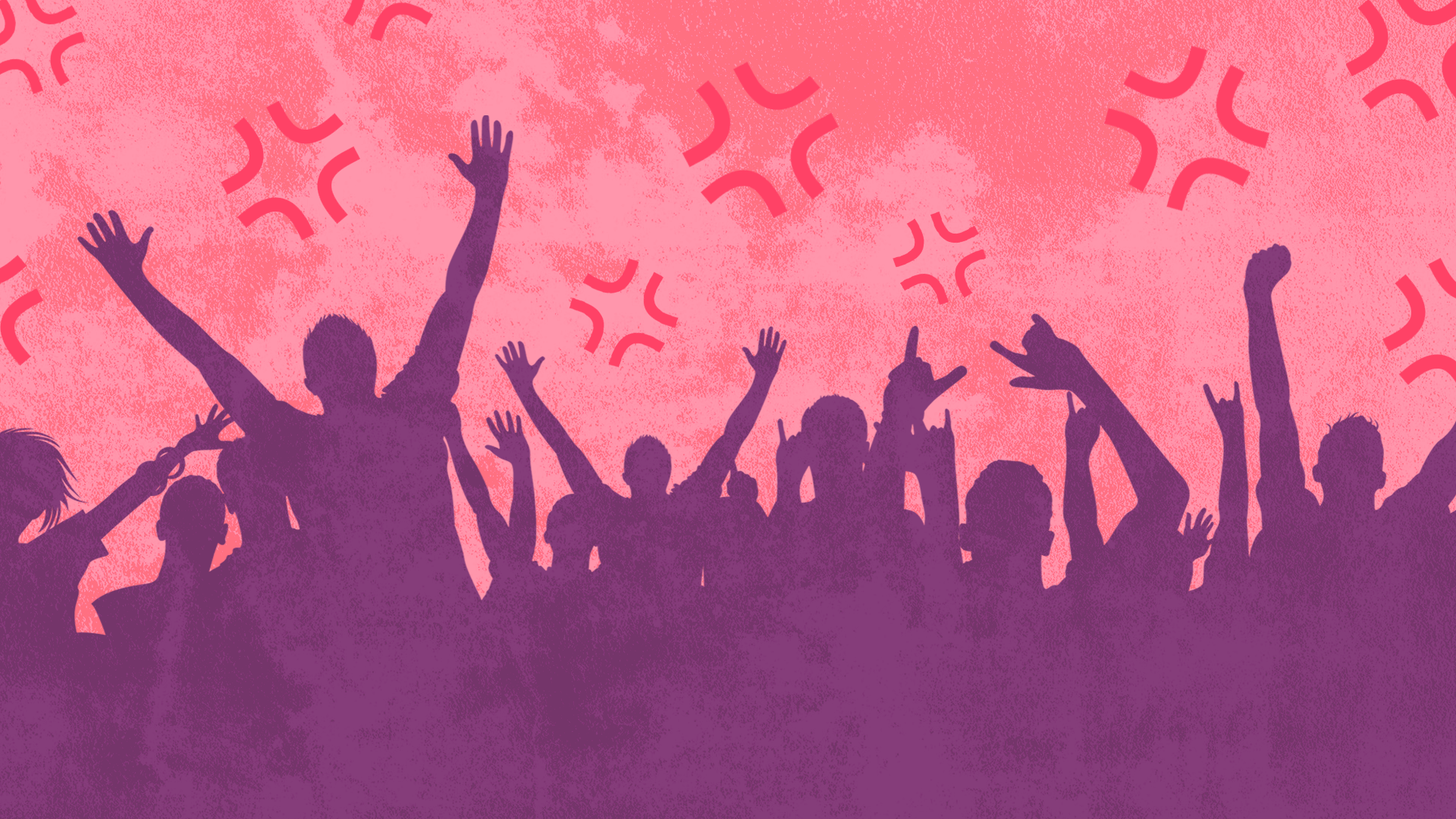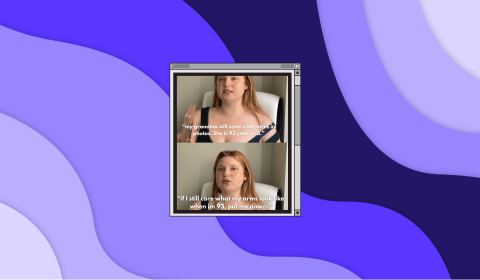From throwing phones to simply not paying attention, Gen Z are seemingly the worst behaved concert goers compared to any other age group. What gives?
![]()
Summer is just around the corner, which means festival season is soon to kick off. Expect pricey concert tickets, camping in a soggy field somewhere, and plenty of booze to boot. As we’ve previously explored, Gen Z are still showing up and attending live music events despite all the hassle and cost, which means most concerts will be flooded with twenty-somethings and late teenage music fans.
Is that a good thing, though?
Publications across the internet have been grumbling about Gen Z concert etiquette for quite some time now. Originating immediately after the pandemic subsided and lockdown restrictions were lifted, artists and audiences have complained about phone throwing, rude behaviour, a lack of self-awareness, and unsafe crowding that has led to injuries and even deaths.
Just this week, musician and R&B producer Kaytranada took to social media to politely express some discontent at the amount of audience goers who were filming his London show on their phones rather than moving and dancing… which is supposedly the whole point of a gig, after all. The moment was a springboard for The Standard to further examine why Gen Z are reportedly so bad at being in the moment and enjoying music without judgement.
‘I think we have come in [to] this age where everybody’s trying to catch a moment for their own social media presence,’ Kaytranada wrote. ‘It looks mad awkward from where I stand as I’m acknowledging the appreciation, but we need to go back to where we used to be y’all. If you put your phone up, let’s move them hips at least!’
Feeling disheartened by a disrespectful crowd isn’t an uncommon experience.
Several years ago, Steve Lacy made headlines for angrily destroying a disposable camera that was thrown at him on stage. He later commented that he was ‘human’ and did not feel the need to apologise. Billie Eilish was hit by a necklace launched at her during a performance late last year too, and called the experience ‘infuriating.’ Cardi B, Harry Styles, Pink, Bebe Rexha and many more have had items flung toward them mid performance, leading to injuries and anxiety.
If it isn’t their physical safety at risk, then it’s likely to be an overall lack of enthusiasm that can wind an artist up to no end. Charli XCX reacted to fans at the very front of the show not knowing her songs or lyrics last year, shrugging them off and asking; ‘are you f**king joking?’ She later went over to the nosebleed seats behind the stage and said she ‘loved’ the audience members who were dancing and making an effort.
Why is this happening? Why are crowds seemingly becoming worse, less interested, or downright obnoxious? The answer is likely to be somewhat complicated, and may extend beyond just Gen Z crowds.
The most immediate answer that comes to mind is the social isolation that was brought on during the height of the pandemic. For many Gen Zers, those years spent stuck inside would ordinarily have been filled with formative teenage experiences, where social behaviours are taught, relationships are usually made, and patterns of self-awareness and respect are organically learnt. By missing out on these moments, many young people now have a gap in their social skillset and lack an awareness of others.
We’ve seen this influence other areas of Gen Z behaviour too, such as less interest in pubs and clubs, more anxiety in crowded spaces, and a greater emphasis on social connection via online platforms. Knowing how to behave and treat others in large spaces may have eroded as a result of much more isolation in Gen Z’s younger years, leading to more aggressive and self-centred behaviour at shows.
Another cause is likely to be the parasocial relationship that young people have with their favourite artists. We know a significantly greater amount about the personalities of popular acts today compared to decades prior. Thanks to social media, constant interviews and promotional material, we get a far greater look into the lives, fears, and motivations behind the music that artists make.
As a result, we feel we know them. It’s partly why Stan culture has become such a phenomena in the modern era. We associate ourselves with an artist, becoming one with their aesthetic and personal outlook. ‘Brat summer’ is the perfect example of this trend. An act’s entire branding and image becomes personal property, a servant to the culture that pop music demands. When we see that individual or act in person on a stage, they’re no longer just a human being. They exist as a symbol and a part of the listener’s identity.
This unbalanced dynamic is likely why some fans feel entitled to throw things, rush the stage, or be disrespectful. Tyler, The Creator’s lead single ‘NOID’ from his last album ‘Chromakopia’ explores this modern dilemma in detail, outlining how this intensity from fans he doesn’t know in real life can lead to feelings of paranoia and defensiveness. ‘Ain’t no respect for nothing,’ he sings. ‘You sing along but you don’t know me.’
A rise in bizarre or aggressive behaviour may also be the result of concert tickets simply costing so much more than they used to. With standard prices now ballooning upwards of £300, there can be a sense of entitlement toward artists and venues that monetarily demand so much form us. If you’re having to save up for many months to see one act for 90 minutes, you hope for and expect an amazing experience.
This heightened expectation and financial sacrifice can lead to a greater sense of hype, excitement or buzz around the concert itself. We’ve paid so much to be there that we want to remember it by filming everything via our phones, taking selfies, and FaceTiming friends who couldn’t make it, even if it means damaging the experience for those around us. Such high prices encourage a selfish mentality that ripples out to the artist and overall experience itself.
So, really, the question of concert etiquette is a symptom of many other issues that permeate other areas of our lives. They serve as a snapshot of modern, post-pandemic stresses and struggles that are shaping the way young people perceive the world. We’re more accustomed to being on our own, with less disposable income and a stronger feeling of attachment to the celebrities we follow on our feeds every day. Improving the average gig experience will take much more than a simple telling off, and may require a wider examination of the social values that have developed over the past decade.
See also:
- Gen Z is hitting the gym to regain some semblance of control
- How do Gen Z really feel about the unstoppable rise of AI?
- How deep is the Gen Z manosphere rabbit hole?
![]()




















